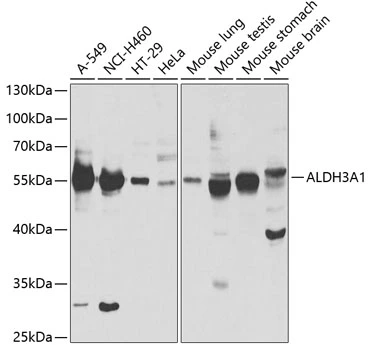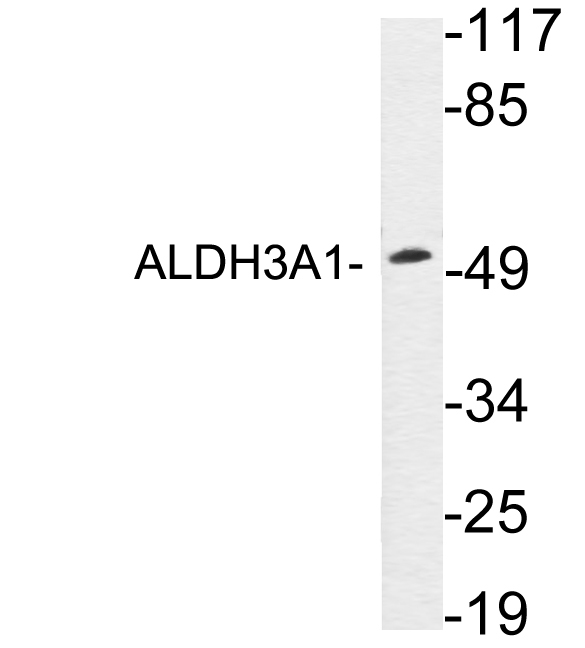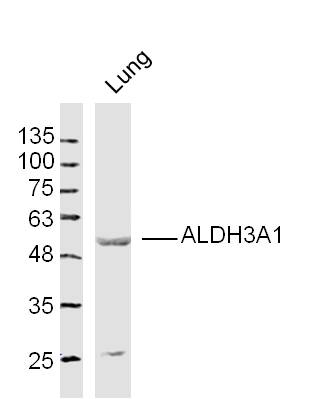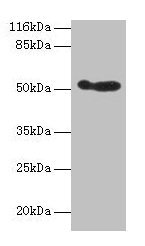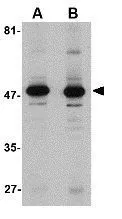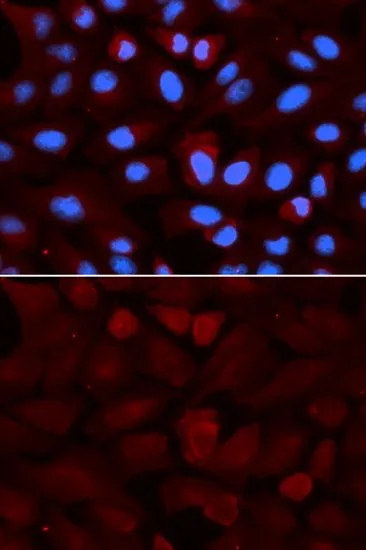
ICC/IF analysis of U2OS cells using GTX30042 ALDH3A1 antibody. Blue : DAPI
ALDH3A1 antibody
GTX30042
ApplicationsImmunoFluorescence, Western Blot, ImmunoCytoChemistry
Product group Antibodies
ReactivityHuman, Mouse
TargetALDH3A1
Overview
- SupplierGeneTex
- Product NameALDH3A1 antibody
- Delivery Days Customer7
- Application Supplier NoteWB: 1:500 - 1:2000. ICC/IF: 1:50 - 1:200. *Optimal dilutions/concentrations should be determined by the researcher.Not tested in other applications.
- ApplicationsImmunoFluorescence, Western Blot, ImmunoCytoChemistry
- CertificationResearch Use Only
- ClonalityPolyclonal
- ConjugateUnconjugated
- Gene ID218
- Target nameALDH3A1
- Target descriptionaldehyde dehydrogenase 3 family member A1
- Target synonymsALDH3, ALDHIII, aldehyde dehydrogenase, dimeric NADP-preferring, aldehyde dehydrogenase isozyme 3, aldehyde dehydrogenase type III, stomach aldehyde dehydrogenase
- HostRabbit
- IsotypeIgG
- Protein IDP30838
- Protein NameAldehyde dehydrogenase, dimeric NADP-preferring
- Scientific DescriptionAldehyde dehydrogenases oxidize various aldehydes to the corresponding acids. They are involved in the detoxification of alcohol-derived acetaldehyde and in the metabolism of corticosteroids, biogenic amines, neurotransmitters, and lipid peroxidation. The enzyme encoded by this gene forms a cytoplasmic homodimer that preferentially oxidizes aromatic and medium-chain (6 carbons or more) saturated and unsaturated aldehyde substrates. It is thought to promote resistance to UV and 4-hydroxy-2-nonenal-induced oxidative damage in the cornea. The gene is located within the Smith-Magenis syndrome region on chromosome 17. Multiple alternatively spliced variants, encoding the same protein, have been identified. [provided by RefSeq, Sep 2008]
- ReactivityHuman, Mouse
- Storage Instruction-20°C or -80°C,2°C to 8°C
- UNSPSC41116161
References
- NRG1 Regulates Proliferation, Migration and Differentiation of Human Limbal Epithelial Stem Cells.Read this paper

